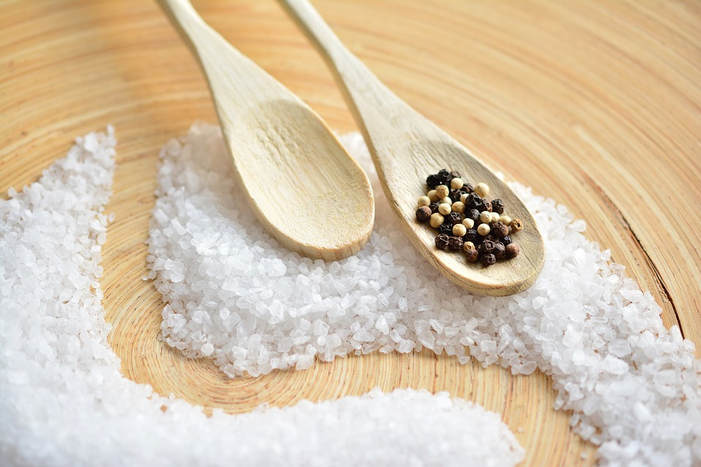EXPERTS ONCE AGAIN WARNING TO RESTRICT SALT INTAKE
IS THAT SMART?
|
The United States could prevent up to half a million deaths over the next decade if Americans cut their salt intake to within national guidelines, according to a new study. That finding – which comes the week New York City announced success toward its goals of cutting salt levels by one-quarter by 2014 – is based on computer simulations using data from various studies on the effects of extra sodium on blood pressure and heart risks. Reuters Health, New York
|
The Institute of Medicine of the National Academies recommends 1,500 mg of sodium per day. They also recommend that you not exceed 2,300 mg of sodium per day. Unfortunately, the average American is actually consumes closer to 4,000 mg of sodium per day. Where is all this sodium coming from? Dr. Coxson claims (I believe she is correct on this point) that it is coming largely from processed foods, with only about 20 to 25% of it coming from their salt shaker. Thus, her recommendation to cut back on processed foods, as opposed to stop salting food.
TWO MAJOR PROBLEMS WITH THIS STUDY
- SALT & SODIUM ARE NOT SYNONYMOUS: Headline after national headline warns people to cut back on their salt intake. But this is not really what this particular study is saying. The study is really dealing with sodium intake. Table salt is NaCl — Sodium Chloride. One molecule of each element, held together with an ionic bond. Although many processed foods are unarguably high in salt, the salt is not the sodium source to be most worried about. I would be more concerned about Monosodium Glutamate — otherwise known as MSG. Without going into detail, just understand that MSG is a terrible substance (read the link). I am glad that on some level, this study differentiates between the sodium that comes from MSG and the sodium that comes from table salt. By the way, what do you think the CDC says is the number one source of sodium here in America? Bread and cereal. Just one more great reason to go GLUTEN FREE.
- COMPUTER MODELS DO A POOR JOB OF PREDICTING ULTRA-COMPLEX METABOLIC PROCESSES IN LIVING ORGANISMS: Since when do computer programs predict metabolic activity? Living systems are absurdly complex. This was brought out in the Best Evidence Salt Study (link below). Trying to calculate complex metabolic activity by creating computer models can be an exercise in folly. Why? Living systems often act 180 degrees differently than you might expect? This fact was recently echoed by Dr. Michael Alderman of New York’s Albert Einstein College of Medicine. He, along with a growing body of others, hotly debate the recommendation to cut sodium to the levels that Dr. Coxson and her team are ultimately shooting for. On top of this, the single biggest study ever done on salt recently concluded that salt restriction leads to early death. And furthermore, the more you restrict salt, the greater chances you have of dying prematurely (HERE).
Are you still afraid of salt? Listen to what renowned Whole Food Nutritional Expert, Dr. Bruce West of Health Alert (one of the best WHOLE FOOD newsletters on the planet) wrote almost a quarter century ago (1990).
|
“Without adequate salt, nausea and anorexia result. And with radically reduced salt diets, nerves and muscles can suffer. There is poor growth, and bones do not develop properly. Digestion and metabolism suffer, and deficiencies of other minerals are common. In fact a low-salt diet is hard to follow, may actually be harmful, and has the potential of doing an enormous amount of harm, even to the heart and blood vessels.”
|

